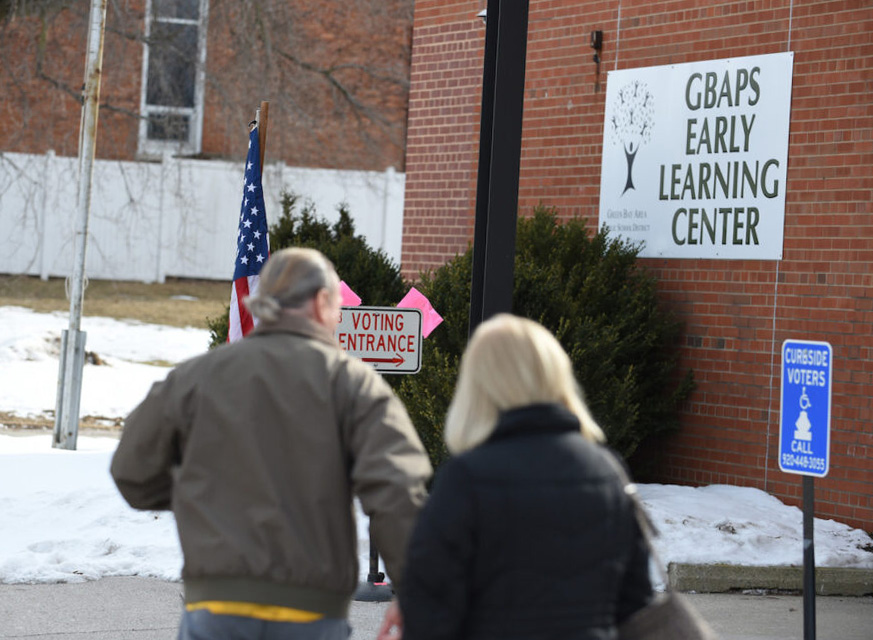
Green Bay City Council
Council approves using contingency funds for extended poll hours
The City Council approved using $15,703 from the contingency fund for a handful of additional expenses for the remaining 2022 elections.
The council’s approval designates $11,767 for additional seasonal salaries to cover extra nights and weekends for in-person absentee voting, recruitment and retainment of poll workers, central count for August and November and temp help.
The council’s action also allows the utilization of $3,936 for the restocking of absentee ballot certificate envelopes and outside envelopes, which came in at a higher cost than budgeted.
“Unfortunately, our absentee envelopes came in at a much higher rate than I had anticipated, and more than in past years,” City Clerk Celestine Jeffreys said.
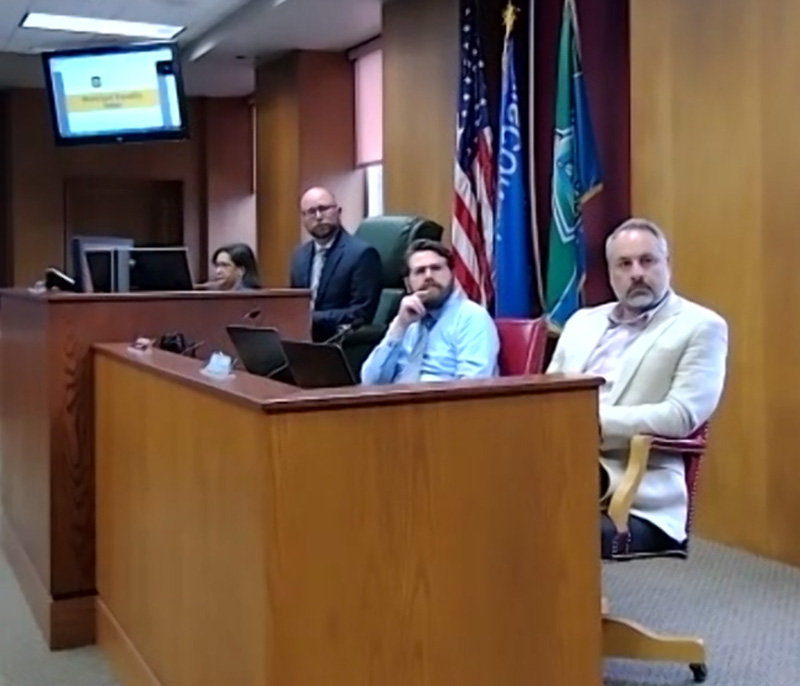
Municipal Equality Index
A significant chunk of the meeting was spent discussing a presentation from the Human Rights Campaign on its Municipal Equality Index (MEI), which aims to ensure inclusiveness toward LGBTQ+ people in municipal laws, policies and services.
Green Bay’s most recent score of 84 out of 100 is an improvement from its 2016 score of 40.
The discussion found its way to the full city council agenda via a recommendation from the Equal Rights Commission to refer to staff a request to create a work plan to attain a score of 100.
Following the presentation from Human Rights Campaign Wisconsin State Director Wendy Strout, alderpersons and community members alike spoke freely on the index.
Council President Jesse Brunette took some issue with the report, questioning whether it leads to individuals with strongly-held religious beliefs being discriminated against.
“I think that if we’re going to expect the city of Green Bay to have some non-discrimination ordinances, we ought to have a definition of what discrimination is so that it covers everyone, there’s some level of fairness,” he said. “I’m just going to be completely blunt with you. There are a lot of tough conversations that happen as a society so that people who identify as LGBTQ can coexist with people who have a deeply held religious conviction that they love and appreciate all diversity, but they just simply cannot do something that violates their conviction.”
Brunette’s comments drew backlash from others on the council, as well as community members in attendance.
“There are some topical points that have been discussed here tonight that I think are important to course correct,” State Rep. Kristina Shelton said. “We are talking about human rights. We are talking about expanding freedom for all, so that every person in our city – regardless of who you are, who you love, how you dress, who you want to marry, how you want to speak with your doctor – is the same for every single person. The difference here between religion, Mr. President (Brunette), is you can choose your religion. We don’t get to choose who we love and who we are. This is who we are.”
Ultimately, the board voted to direct staff to brainstorm ideas to achieve a higher MEI score, which includes language put forth by Brunette that includes specific provisions to protect religious freedoms, rights of conscience and sincerely-held religious beliefs of individuals and organizations.
City-owned flagpoles
A discussion that extended into the early morning regarding city-owned flagpoles ended in a tie vote with Mayor Eric Genrich breaking the tie to receive and place the item on file.

Before the council was a motion put forth by District 2 Alderperson Jim Hutchison to receive and place on file a request for staff to create a flag ordinance that reserves city-owned flagpoles to just three flags – the American flag, the Wisconsin flag and the City of Green Bay flag, in that order – and nothing else.
Hutchison said the thing that irks him about the whole thing is the timing.
“I don’t really have an issue with talking about flagpoles,” he said. “But to pull this thing out this month, hits below the belt. If this would have come next month, okay, it would be totally different. It is the timing of it that is totally wrong. That’s why I’m saying file it, if you want to bring it up again next month, okay, and let’s deal with it. But I don’t want to approve this thing and have people working on this thing starting this month. I want to give some dignity to these people and let them live this out. And if we want to talk about flags and flagpoles later, okay, let’s do it.”
District 4 Alderperson Bill Galvin echoed Hutchison’s thoughts, even getting choked up as he spoke.
“As (the gentleman who spoke tonight) said, could not the American flag represent us all?,” Galvin said.
“The day we can put a pride flag or a flag for some other minority up on the flagpole and nobody notices, maybe that’s time we can start thinking that the American flag really represents us all. I’m not a minority. I’ve never been a minority. I don’t know what it’s like. I have family members that have been treated badly because of who they married. It makes me angry, and it makes me sad that people are treated like that.”

Brunette said the issue highlighted the city’s need for a flagpole policy.
“We don’t have a policy,” he said “So we need a policy for situations like this. Now, as a council, we may very well vote to include circumstances in the policy, but at least we have a written document. We just can’t assume that everyone within the community has the same opinions on what that flag represents.”
District 8 Alderperson Chris Wery said it isn’t just about one flag, “but it’s about opening up Pandora’s box.”
“Do we want that?” Wery questions. “Do we want future mayors to really weigh in on social and political commentary and agendas? We have so much to do as a city. Let the political and social commentary take place elsewhere. Let’s just focus on uniting under the American flag, state flag and city flag. That’s all that we would need.”
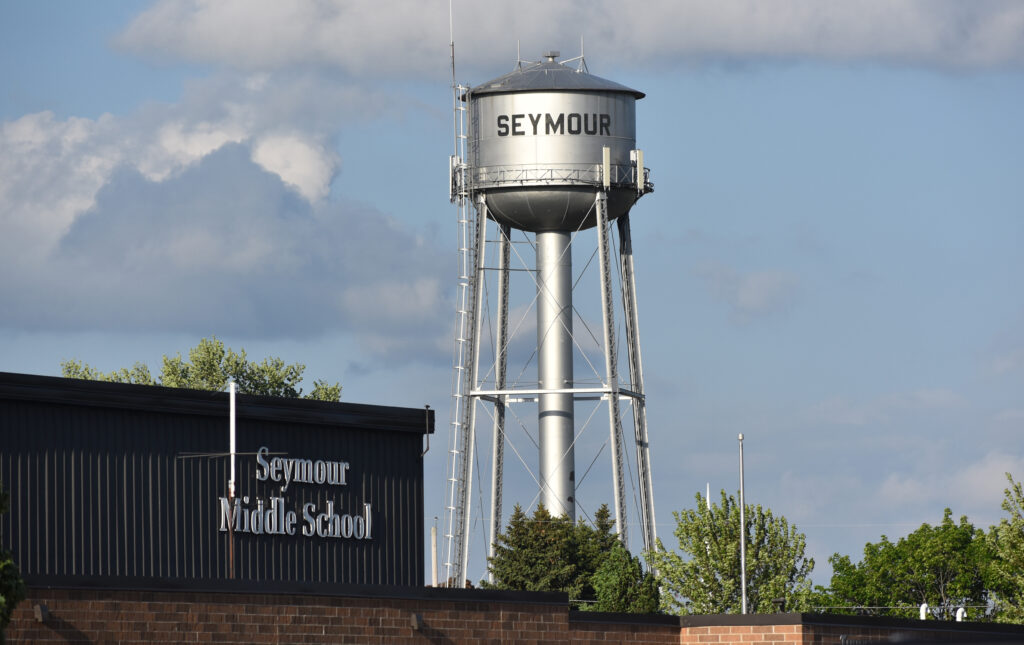
Seymour School Board
Preliminary budget approval
The School Board voted unanimously to close the books of the 2021-22 school year at its Tuesday, June 28 meeting.
In the very next discussion, the board began conversations on the 2022-23 preliminary budget.
Trustees approved the “best guess” budget presented by Pete Kempen, business manager for the district.

“Because it is so preliminary, numbers are hard to project due to actual numbers, such as enrollment, coming in from the state in September and October,” Kempen said. “So this is a preliminary budget, and the official budget gets approved in October.”
He said though the amount of state aid the district will receive remains unclear, approving the preliminary budget now allows for spending to begin July 1, the start of the fiscal year.
At this point, Kempen said the district is projecting a deficit of about $500,000.
“This is due to the recent inflation, as well as receiving no spendable money from the state last year or predicted this fall,” he said. “That may change, which would affect the numbers positively. At this time I am recommending that we move forward, and if we still have a deficit when the budget is certified in October, that we use fund balance to cover the deficit and look at doing a referendum for operational expenditures.”
As far as the budget itself, Kempen said the district is projecting a cut in Fund 10 expenses of about 1% from last year.
“Most of the increase is in the Special Education fund, Fund 27,” he said. “That is projected to increase about 10%. Revenue is projected to be down about $800,000. Other funds are all in balance with similar expenditures to last year.
Kempen said again, these are very preliminary numbers at this stage.
“The actual certification comes in October,” he said.
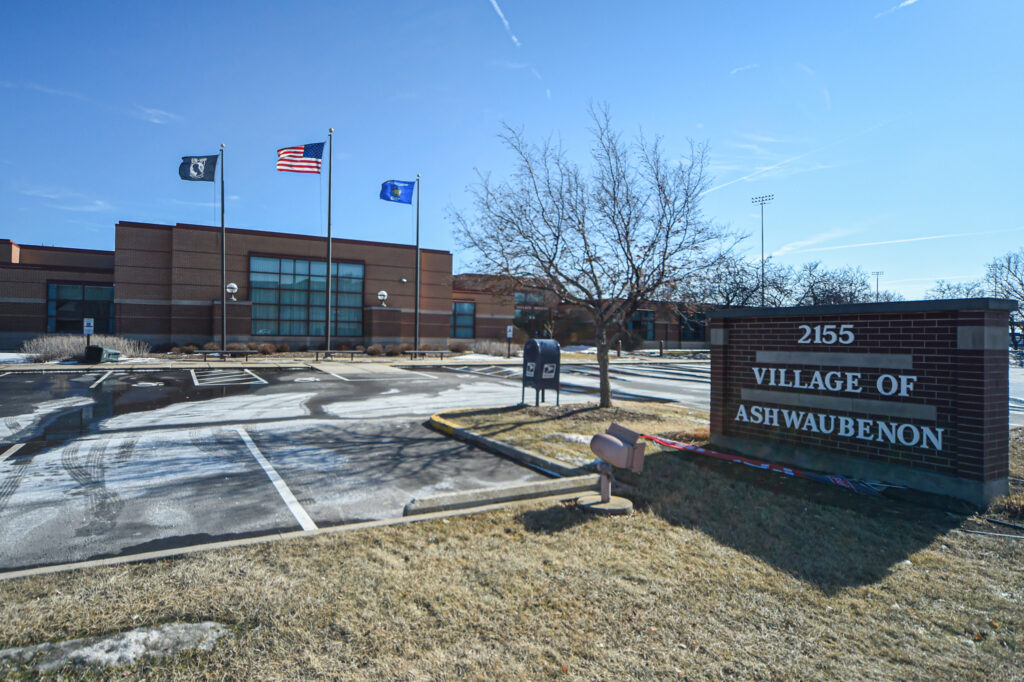
Ashwaubenon Village Board
Martin to retire as public works director July 4
Public Works Director Doug Martin announced he will retire Monday, July 4, after 22 years of service to the Village of Ashwaubenon.
Martin thanked the board for its continued support over his tenured career.
“The boards and projects I have worked on were fabulous,” he said. “We were always able to move through disagreements, and I want the person who takes this job to be able to continue that.”
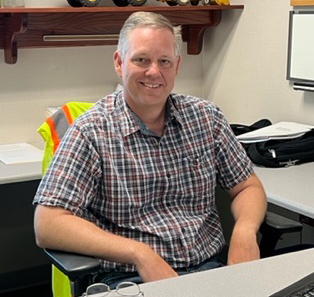
Trustee Chris Zirbel said the position is going to be difficult to fill.
“Doug has done a great job,” Zirbel said as he paused to wipe his eyes and regain his composure. “Sorry about that. We need somebody who’s going to be a team player, someone who has the character that he’s got.”
Whoever the board appoints to fill the position will likely not start until September or October, leaving the position vacant for a few months.
Rezoning request
A public hearing regarding a rezoning request for a property on Grant Street garnered some concerns from residents – noting the addition of driveways could cause for a more dangerous situation.
The request looks to rezone the 1680 Grant Street property from R-1 One Family Residence to R-2 Two-Family Residence to permit the development of the Three Putt Meadows Subdivision Plat on the property.
Community Development Director Aaron Schuette addressed resident concerns, saying the Brown County Highway approved the installation of two more driveways.
Trustee Tracy Flucke said she has started to avoid Grant Street while biking because of the dangerous speed and 10 driveways already present, and was surprised that Brown County approved the proposal.
“For the safety of the residents in the future, I just can’t approve this,” she said.
Trustee Gary Paul said he was frustrated.
“All we’re doing here is spinning wheels,” he said. “Let’s go to the county.”
The board unanimously approved the bid to rezone 1680 Grant Street to a two family residence, but tabled the request to start development on the property based on the concerns that were raised.
Before moving forward on that request, the board directed staff to reach out to the county for further information on its decision to allow additional driveways.

Howard Village Board
Evergreen Road reconstruction
Trustee Craig McAllister started the Monday, June 28 Village Board meeting with two questions – why was there a $5,265 increase for the Evergreen Road reconstruction contract with McKeefry & Sons Inc.; as well as a $13,076 increase for the Village Center second addition road contract to MCC, Inc.
Director of Engineering Mike Kaster said for Evergreen Road, some grading was a little bit different in the field than what was anticipated.
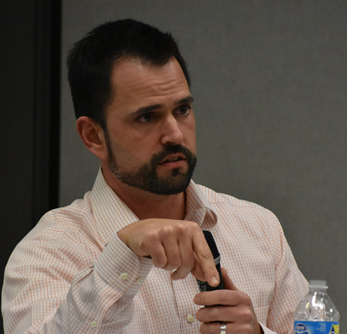
“Our quantity on the original bid was probably a little bit low, so that’s where that total came in,” he said. “For (Village Center Road), the soils out there are clay, and it’s pretty good clay when it’s dry, and we had a portion of Lemier Court and Howard Commons that required some fill in the subgrade area below the stone, and it still just didn’t hold up, so we wound up putting a good portion of geogrid on there, which floats really good on clay.”
He said the increase reflects the addition of items required to stabilize the road subgrade.

The Runaway Lounge license application
Due to the uncertainty of the future of The Runaway Lounge building, located at 2027 Velp Ave., the board denied the approval of an alcohol beverage retail license application for the establishment.
The denial is partially due to the condition of the building after damage from the June 15 storm.
“It’s getting rebuilt in the same condition and size, and within a couple months it should be ready to go,” Ronnese Williams, the applicant and manager, said. “I’ve been in Green Bay for 20 years now, and I think this is a great opportunity for me to be an entrepreneur, and I don’t know the history of the bar, but you won’t have any trouble with me in charge.”
The current alcohol beverage license holder’s license was suspended by the board in July 2020 for 30 days due to multiple violations.
Trustee Ray Suennen said he had concerns.
“This particular location, because it’s located so close to the street and because it is not the owner involved in this – we have the manager – I feel a bit uncomfortable,” he said. “The owner isn’t directly telling us what is going on with this, as well as there’s a high demand for remodeling and a shortage of labor, so I’ll make the motion to deny this application.”
The license was denied unanimously, however, the board said the applicant can reapply when improvements to the building are made.

Green Bay School Board
50th anniversary of Title IX
The School Board began its Monday, June 27 meeting by recognizing the 50th anniversary of Title IX – which officially marked the end to gender discrimination in school sports.
The board acknowledged the milestone with an official proclamation.
“While great strides have been made, there is still progress that has to be made,” Ellen Krueger, Title IX coordinator for the district, said. “As we celebrate the anniversary of Title IX, and those who fought to get us where we are today, I am hopeful that we can overcome the existing adversity and create a more equitable future for all students, regardless of gender identity or gender conformity. I’d like to thank our Board of Education in our district for being on the forefront of breaking down these barriers for all of our students, regardless of gender.”
Superintendent RFP
The process to find the next superintendent for the Green Bay School District is officially underway.
Board members approved the final draft of the request for proposals (RFP) documents at its June 27 meeting, which has been sent to potential search firms.
The updated draft includes more specifics on requiring interested search firms to provide details on successful placements of superintendents that stay within a district for more than three years.
Board Member Laura Laitinen-Warren also requested that the board get away from using the term minority and instead use people of color.
The deadline to submit RFPs is Aug. 10.
Interim Superintendent Vicki Bayer’s contract extends through the end of the 2022-23 school year.
Online school name chosen
By unanimous consensus, the board selected Katherine Johnson Academy of Enriched Virtual Learning as the name of its year-old virtual school.
Johnson, who died in 2020, was a leader on the cutting edge of technology and human innovation.
Committee members noted that Johnson’s ambitiously sought educational experiences and the adversity she overcame to earn her education fit in line with the district’s online school mission.
“I had the privilege of serving on this committee and everyone that participated took it very seriously,” Board Member James Lyerly said. “And we had about 12 different names that we went around and voted on multiple times to kind of get to the options that you saw at the working session. So, I don’t want the public to think that we came here and all just kind of agreed on a particular name there. There was some robust discussion around these names.”
Lyerly said the school is now set to start rolling out a marketing plan around its new name.
“It gives a lot of parents in this district options if they are currently homeschooling and ever want to get that curriculum via a district program,” she said. “So I’m very proud of the district.”
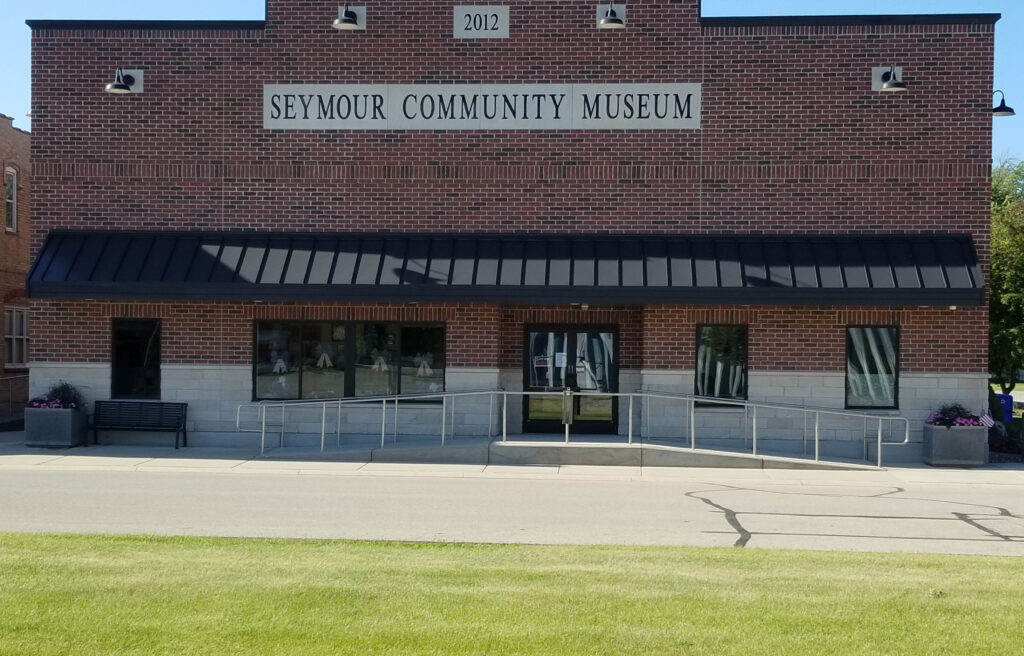
Seymour City Council
Annual museum report presented
The Village Board heard the annual status report of the Seymour Community Museum from Bill Collar from the Seymour Community Historical Society at its Monday, June 27 meeting.
Collar thanked the city council for its continued support of the museum.
He said in 2020, the museum had an expenditure budget of $38,000 and a total income of $38,900.
Collar said the largest expense of the budget are the utilities that total nearly $16,000, which is paid with help from the city.
He said the museum also relies on donations to keep going, which vary from year to year, ranging from $10,000 to $11,000.
Restoration work on the Miller-Piehl Building, located next door to the museum, in the form of tuck pointing – which is the process of finishing or repairing mortar joints between bricks or stones – is ongoing.
Collar said the $35,000 price tag was absorbed by the historical society with recently received money from the estate of a member of the Piehl family.
He said the Miller-Piehl building is one of the oldest buildings in the community and was at one time at risk of being torn down.
“We’re very fortunate that we can preserve that building that dates back to 1893 and was used as a general store in the 1930s,” Collar said. “At one time there was talk of tearing it down, but we managed to preserve it.”
He said there is also a mural in the works on the west side of the Miller-Piehl Building, which faces Main Street, that should be installed by July 9, which falls on the 10th anniversary of the museum.
In other business, the council:
• Approved, with no discussion, a resolution amending the 2022 sewer budget.
Village Administrator Sean Hutchison said the sewer utility budgeted $25,000 in capital expenses for sewer repairs and $177,000 for depreciation expenses, which covers maintenance and replacement costs for the wastewater treatment plant and collection system.
He said funding not used in the current year will be encumbered into the sewer utility depreciation fund.
“Staff is forecasting a revenue reduction of $93,632 during the 2022 fiscal year,” Hutchison said. “The reduction is attributed to filter membrane repairs performed by one of our major industrial dischargers. Staff is taking this reduced revenue into consideration and is lowering our depreciation expenses by this same amount.”
He said the approved resolution will allow the sewer utility to perform approximately $84,000 in site repairs to the city’s collection system and remain at the estimated 2022 budget.
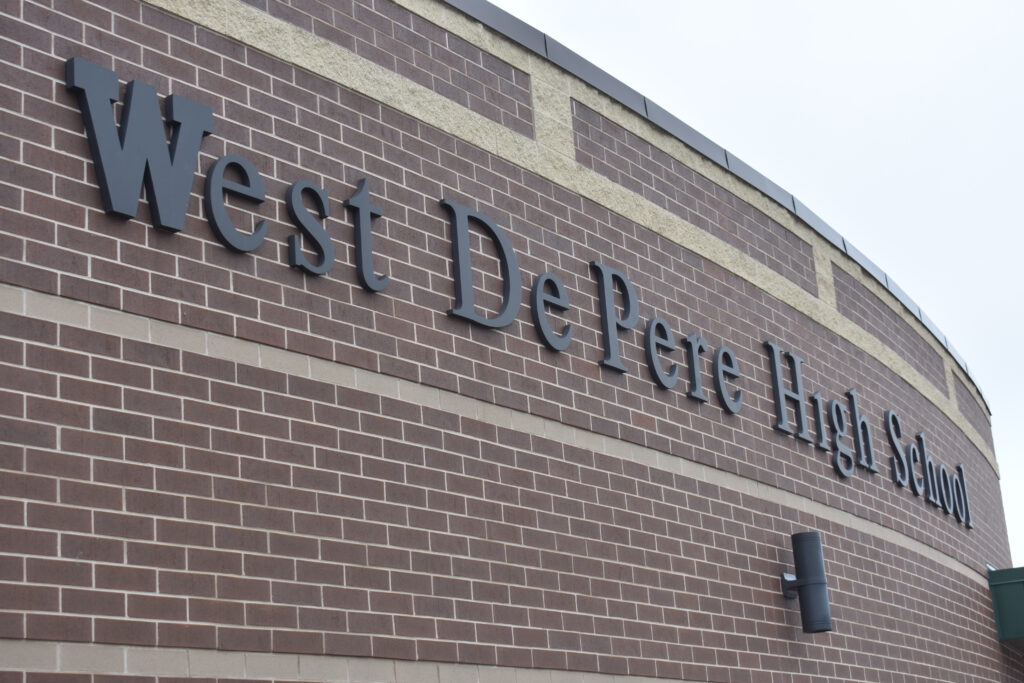
West De Pere School Board
School meal price increases approved
The School Board voted unanimously at its Monday, June 27 meeting to approve an increase in school meal prices for the 2022-23 school year.
It’s the first increase since the 2019-20 school year, and comes after two years of meals being provided for free at nearly all Wisconsin public schools under a federally-funded, COVID-19 relief program.
The increases are as followed:
The cost of milk at all schools has increased from 35 cents to 50 cents.
The cost of elementary meals will increase from $1.80 to $2 for breakfast; and from $2.90 to $3 for lunch.
Breakfast for intermediate/middle school students will now cost $2.10 (formerly $2); and lunch will go up to $3.50 from $3.15.
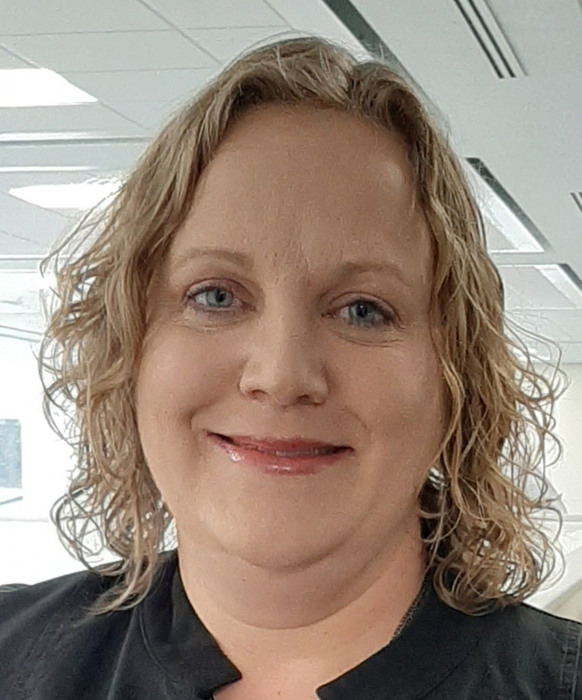
High school meal prices will increase from $2 to $2.20 for breakfast; and from $3.15 to $3.60 for lunch.
The price of adult lunches will also be affected, increasing from $4 to $4.65.
Board President Jenni Fuss said the price increase is necessary, but she worries that these increases may be a source of hardship for families in the district.
“We know there’s a need, and we just approved those increases, which we have to do,” she said. “If there isn’t free lunch next school year, I just worry about what does it do to families and what does it do to these kids.”
Fuss said parents concerned about affording lunch for their student(s) are encouraged to apply for free or reduced meals.
Substitute pay increase approved
The board also approved an increase in pay for substitute teachers.
The increase, which will go into effect beginning at the 2022-23 school year, raises wages of substitute teachers within the district from $167 to $170 per day – a higher rate than what is currently offered to substitute teachers by surrounding districts.
District growth and capacity
The board got a look at the district’s potential growth through a strategic plan monitoring update.
According to the report, based on expected growth in the student body, all of the district’s buildings will exceed capacity by 2035.
The report states the total number of resident students is expected to increase from roughly 3,5000 – the current total – to 4,500.
Of those additional 1,000 students, 500 are expected to be at the elementary school level, 120 at the intermediate/middle school level and 250 at the high school level.
Nick Johnson, from MDRoffers Consulting, said the growth will cause the largest hurdles at the elementary school level, as Hemlock Creek is expected to exceed its capacity by 2030, and Westwood is expected to be at capacity by 2035.
As part of the report, the potential addition of an elementary school at a currently vacant site off of Little Rapids Road is noted as a possible solution to enable the district to accommodate the expected increase in students.
“So, without changes, Hemlock Creek will likely exceed capacity by 2030 and be well over capacity by 2035. Westwood will be right at capacity by 2035,” he said. “The Southern part of the district, off of Little Rapids Road, does seem like an ideal location for a third elementary school for the district, as it would be able to capture a lot of that growth.”
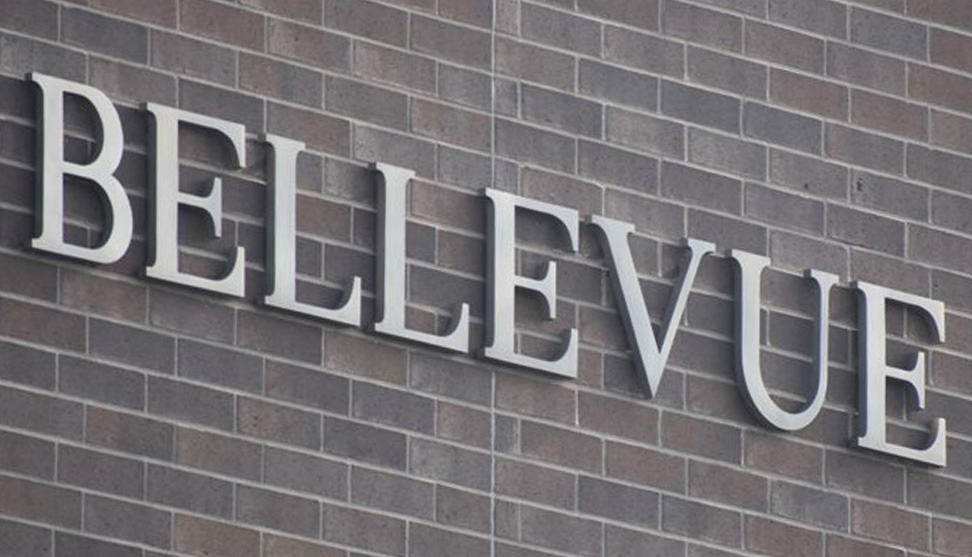
Bellevue Village Board
Comprehensive financial report
Scott Sternhagen, with CliftonLarsonAllen (CLA), presented the final results of the 2021 annual comprehensive financial audit report to the Village Board Wednesday, June 22.
Sternhagen said the total fund balance increased from previous years.
“I feel like the village is in good financial condition,” he said. “The general fund and all the other funds of the village are in good financial condition.”
Sternhagen also recommended a water rate increase for future years.
“With the water (utility), you still have assets and cash there, you’re just trending where now it’s time to look at that rate increase,” he said.
Left-hand turn lane addition
A discussion on whether to add left-hand turn lanes or bypass lanes to Main Street (U.S. Highway 141/State Highway 29) at Bel Meadow Drive and Apple Ridge Court as part of the resurfacing project has stalled.
The Wisconsin Department of Transportation’s (WisDOT) investigation of these locations consisted of traffic counts, vehicle accidents and advancing traffic volumes, and it was determined that the information gathered did not meet the criteria for turn lanes or bypass lanes to be constructed.
Andrew Vissers, interim village administrator/community development director, said if the village would move forward with the project, it would be charged 100% of the construction costs.
He said currently, WisDOT has bumped the resurfacing project to 2026, with the possibility of the project being completed in 2025.
The estimated cost of adding both bypass lanes is $90,000.00.
With the project scheduled in 2026, the cost could be higher due to inflation and rising construction prices.
A motion to move forward with an agreement with the WisDOT and place funds for the project in the 2025 capital improvement plan failed with a 2-3 vote, with Board President Steve Soukup and Trustee Jackie Krull voting in favor.
Director of public works recruitment
The board entered into an agreement with Public Administration Associates (PAA) as it yet again embarked on a search for a director of public works.
“Recently, I was informed by our current director of public works that they would like to transition back to the street superintendent or operations superintendent position, thus ultimately creating a vacancy at the department head level,” Vissers said. “The individual will stay in the role of interim director until a suitable replacement time.”
Board members chose option B for a total of $12,900, which includes all services including some guarantees.
With option B, if the initial search is not successful, PAA will conduct one additional search process until the position is filled.
It also includes a new search with a waived consultation fee if the candidate selected either resigns or is terminated for cause within the first 12 months of employment.
PAA said a municipal management search of this type will take approximately 12-16 weeks from start to when the new employee begins his or her duties.
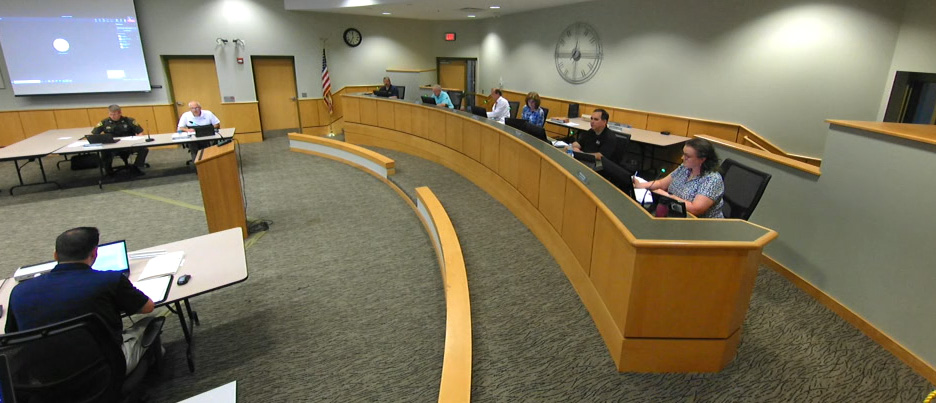
General obligation bonds awarded
The Village Board awarded the sale of a reduced amount – $4,820,000 – in general obligation community development bonds (originally presented as $4,880,000) with Bankers’ Bank out of Madison for a true interest rate of 3.14%.
“The reason we’re able to issue less bonds is twofold,” Todd Taves, a senior municipal advisor for Ehler, Inc., said “Firstly, we did receive a small reoffering premium around $11,000. But the major factors are that when we sell bonds we provide for a maximum allowance, that the data now contains enough information for the underwriting of the obligation and the underwriters compete on the app in addition to the interest rates.”
Press Times Editor Heather Graves, Staff Interns Kat Halfman and Jim Paul and Interns Victoria Wittenbrock and Janelle Fisher contributed to these recaps.
